Authority has always shaped human society, influencing how we govern, think, and believe. At its core, authority is comprised of expertise and the right to rule—whether earned or imposed. Science and religion, often positioned as opposing forces, are two sides of the same coin when it comes to claiming authority over truth. In our globalised age, where spirituality is resurging and institutional narratives are being questioned, we must ask: Who holds the power to define truth?
History & Philosophy: The Shifting Sands of Authority
During the Age of Reason (17th–19th century), science emerged as a counterforce to religious dogma. The Enlightenment brought empirical methodologies that sought to dispel superstition, clerical control, and economic manipulation by religious institutions—primarily the Catholic Church. However, the transition from religious to scientific authority was not a complete break but rather an evolution. Scientific institutions inherited the hierarchical structures and gatekeeping methods of religious organisations, reinforcing the illusion that secularisation equates to modernity and progress.
The Quest for Truth: Science vs. Religion
Science and religion both claim to seek truth but operate on different principles:
- Science: Rooted in rational empiricism, science is an operating system that transforms faith into control through observation, experimentation, and replication.
- Religion: Based on divine right, religion historically functioned as an operating system that turned faith into subjugation, using doctrine to enforce moral and societal rules.
Despite their differences, both systems have been wielded as tools of power, shaping cultural narratives and controlling populations.
The Economics of Authority: Money and Power
Both science and religion have economic dimensions that reinforce their authority:
- Science & Industry: The pharmaceutical, agricultural, and tech industries profit from scientific advancements, often prioritising economic gain over ethical considerations.
- Religion & Fear: Religious institutions, particularly the Catholic Church, historically used fear-based constructs like hell to maintain control and accumulate wealth.
Authority, whether scientific or religious, is deeply intertwined with economic power structures.
The Modern Paradigm Shift: Re-evaluating Truth
Today, scientists are the new high priests, advising corporate giants while the public grapples with environmental crises, industrial damage, and the lingering effects of colonial empire-building. As someone trained in immunology, I became disillusioned with the industrial nature of medicine and its rigid dismissal of alternative health models. Science, much like religion, has often been weaponised to marginalise non-Western knowledge systems, including indigenous healing practices and astrology.
Philosopher Thomas Kuhn argued that science does not progress linearly but through paradigm shifts—moments when new models replace outdated world views. Are we in such a shift now? As cracks appear in the authority of both science and religion, new possibilities emerge: alternative cosmologies, mythic frameworks, and holistic approaches to truth-seeking.
Conclusion: Beyond the Binary
The duality of science vs. religion has long shaped our understanding of knowledge, but it may be time to move beyond this binary. Both systems have strengths and limitations. The future of truth-seeking may lie in integrating diverse perspectives, embracing intuition alongside reason, and recognising the cultural biases embedded in our epistemologies.
As we stand at the precipice of a new era, the question remains: Who will shape the next paradigm, and what kind of truth will we choose to believe?









